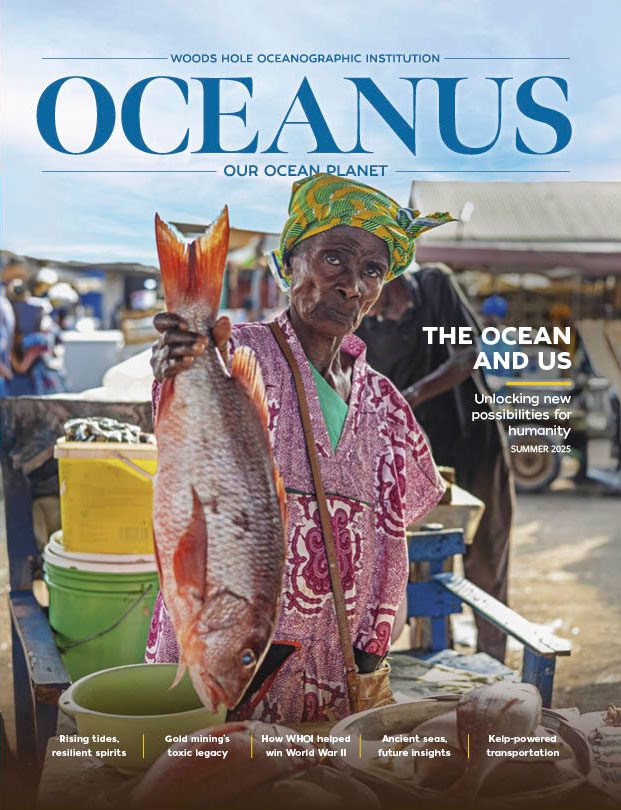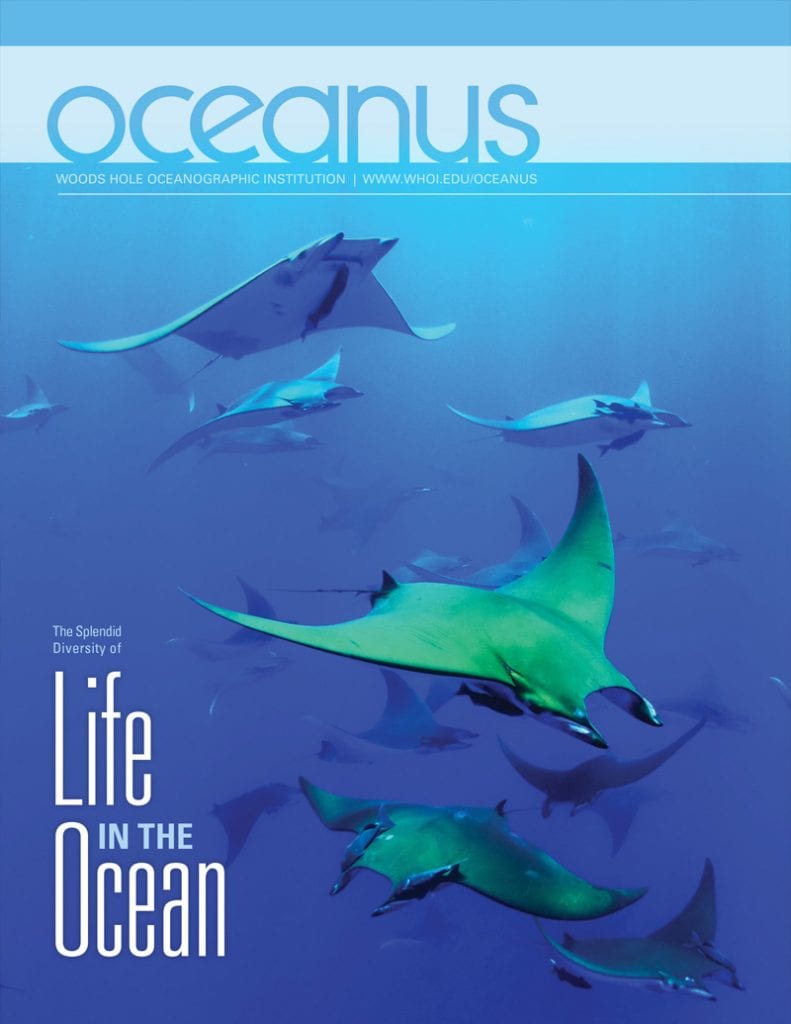Become a member and get Oceanus magazine
- Gain access to thought-provoking and informative storytelling from the world’s largest independent oceanographic institution
- Read in-depth interviews with leading ocean experts
- Dive into immersive photography and multimedia stories from the field
- Stay up to date with news about the ocean community, key discoveries, and events
- And, as a member, you will get WHOI’s popular Right Whale T-shirt, 15% off on all WHOI merchandise, and more

